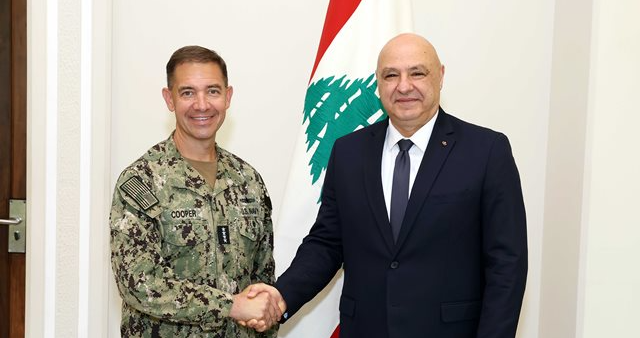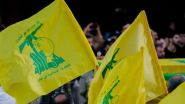
Lebanon is advancing its cooperation with the United States, with President of the Republic General Joseph Aoun urging Washington on Saturday to press Israel to withdraw its forces from Lebanese territories. Aoun also reaffirmed the importance of US backing for the Lebanese Armed Forces (LAF).
Aoun stressed the need to fully implement last November’s ceasefire agreement, during a meeting with US Central Command Commander Admiral Brad Cooper at Baabda Palace, alongside US Ambassador Lisa Johnson and General Michael Leeney, head of the Mechanism committee supervising the cessation of hostilities.
“We call on the United States to pressure Israel to withdraw from the lands it still occupies in the south, so that the Lebanese Army can complete its deployment to the international border,” Aoun said. He added that activating the Mechanism was “necessary to halt Israeli violations, secure the withdrawal from occupied hills and lands and ensure the return of prisoners,” in line with UN Security Council Resolution 1701.
Aoun noted the Army’s advances in southern Lebanon, deploying across more than 85% of the area south of the Litani River despite difficult conditions. He warned that the continuation of Israeli strikes “hinders the Army’s ability to complete its deployment,” recalling that 12 soldiers and officers have been killed while dismantling mines or transporting munitions.
Turning to US support, the President stressed that “the continued support of the United States, through equipment, vehicles and training, is vital for the Army to carry out its missions across Lebanon, whether in maintaining security, preventing smuggling and terrorism or controlling the Lebanese-Syrian border.”
For his part, Admiral Cooper praised the Army’s “distinguished work in the south and across the country,” confirming that the United States “will continue to provide assistance in training and equipment, in coordination with the administration and Congress.”
He added that the Mechanism committee will convene on Sunday “to discuss the situation in the south and work toward consolidating stability through the continued implementation of the November agreement.”
Aoun concluded the meeting by underlining Lebanon’s centrality to regional stability, telling Cooper, “The stability of Lebanon is a key factor for stability in the region.”



Comments